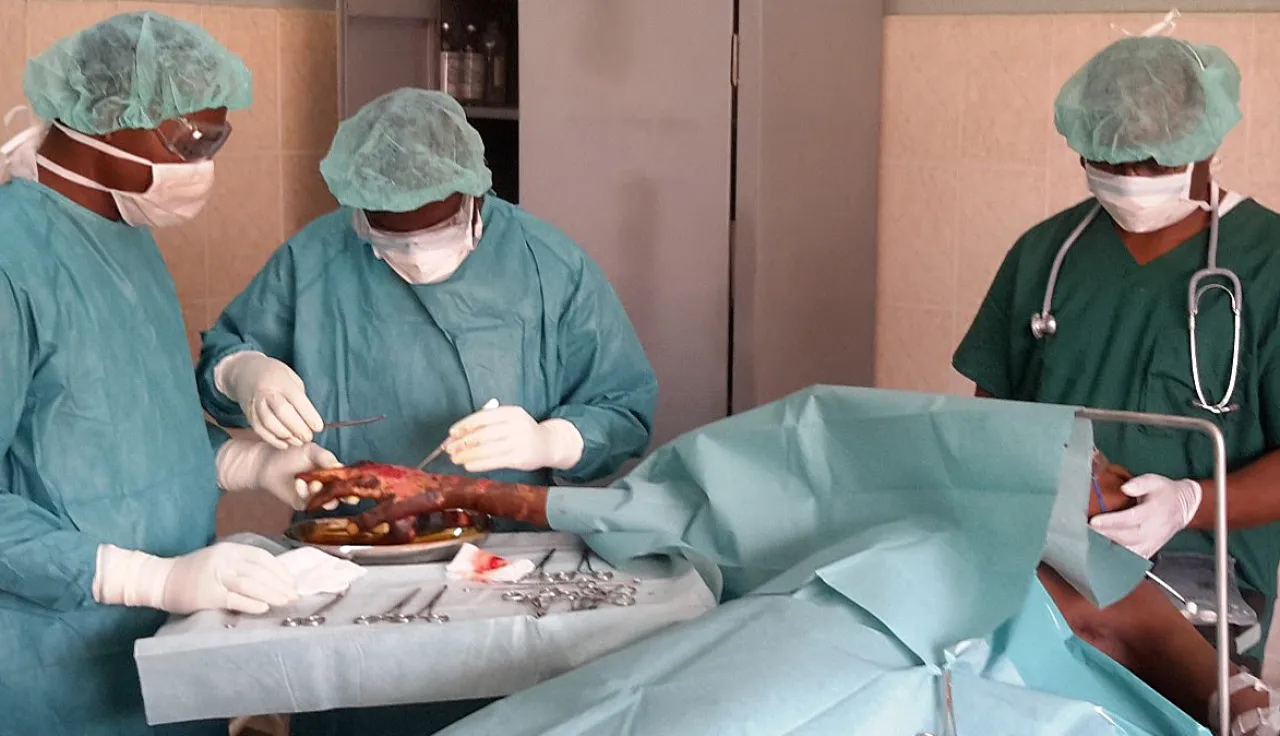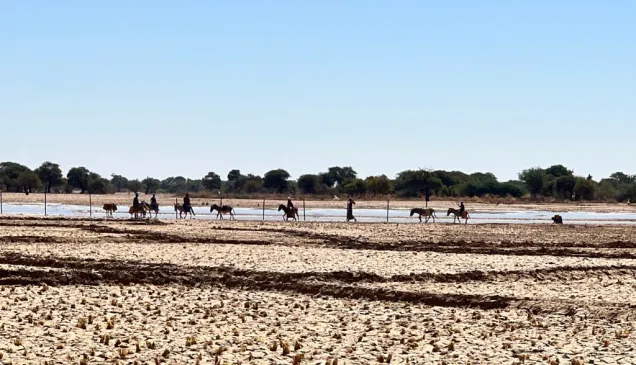Mali: Struggle for survival in Kidal amid water and health-care crises

"Many medical staff have fled the fighting and water shortages are rife in the Kidal region, in northern Mali," said Ibrahima Tounkara, who is in charge of the ICRC's activities in the area. To help people severely affected by the combined effects of the conflict and harsh climate conditions, a six-person ICRC medical team is working alongside local medical staff at the main health facility in Kidal. The water supply has also improved since the ICRC provided generators to keep water pumping from the boreholes in the area.
Can you describe the situation in Kidal and the region from a humanitarian perspective?
This is a desert region and water is a rare commodity. People spend days at a time searching for water. This is taking its toll on arable and livestock farming – there have been reports of animal carcasses in several locations (Abiyou, Tassik, Agharouss, Intibzaz). On top of that, health facilities have been severely affected by the conflict: with medical staff having fled the fighting, decent health care is hard to come by.
What is the ICRC doing?
A six-person medical team specialized in treating war-wounded patients has been deployed to Kidal. They are working with local staff in the city's main health-care facility. We are also assessing primary health-care needs in the Tessalit area, in the north of the Kidal region, to decide what we can do in the future there. Meanwhile, our teams are striving to meet people's basic needs, including in terms of access to water.
What is the situation at Kidal's main health-care facility?
We have finished renovating the building that houses the health facility, and upgraded the electricity, water and air-conditioning systems. The operating theatre is operational and the ICRC's surgical team has started working there. At least a dozen operations have already been carried out and thirty women have given birth in the best possible health and hygiene conditions. Over a thousand medical consultations have been conducted, and fifty people admitted to hospital, including some wounded following armed clashes in the north of the country.
Thanks to the ICRC's support, patients admitted to hospital, pregnant women and children under five have all received free treatment. Around fifty people have also been hired to boost the medical staff and the ICRC is planning to step up its support in terms of equipment, staff and medicines in the coming months.
What are the ICRC's other priorities in Kidal?
We have provided generators to keep the water pumps running at eight boreholes, supplying some 17,000 people. We are helping farmers and herders in the region by digging wells, distributing animal feed and vaccinating their livestock. We are also planning to support some livelihood projects, like we do elsewhere in Mali.
And we have a partnership with the Mali Red Cross to help people separated from their families by the conflict to contact their loved ones. Lastly, we are continuing our awareness-raising sessions on international humanitarian law, especially with armed groups, to foster respect for our neutral and impartial humanitarian action.
What are the challenges facing humanitarian workers?
Security concerns are unfortunately ever-present when travelling in certain areas, including as regards explosive devices that continue to claim lives. This makes managing security a challenge and restricts the movements of humanitarian workers. The ICRC is one of the few international humanitarian agencies to have continued working on the ground in Kidal in recent years, despite suffering several security incidents.



